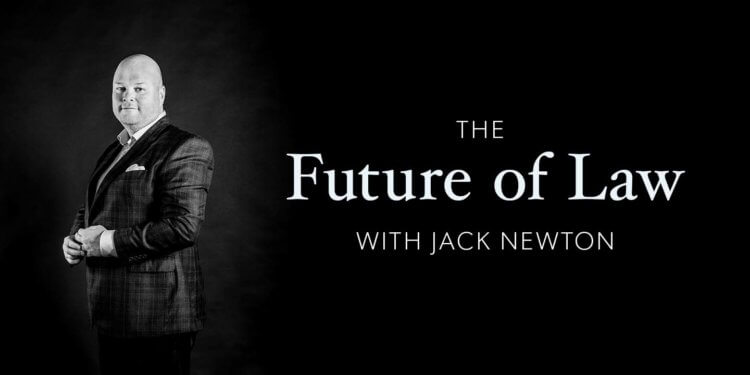Leading With Empathy in Times of Transition
COVID-19 has initiated massive waves of change across daily life as we know it, leaving a deep and lasting impact on virtually every industry. Lawyers and legal professionals that had hesitated to adopt technology in the past were suddenly forced to rapidly adapt to this new reality, or be faced with irrelevance or failure. A transformation of the legal industry we might have expected to take place over the next five to ten years is now taking place over the course of the coming weeks and months.
Law firms that have found ways of adapting to this new reality are well-positioned to navigate the forthcoming transformation of the legal market and the broader economy. For firms that haven’t yet switched to a solution that lets them work from home and in a fully distributed fashion, it’s not too late: Change is still entirely possible.
No matter what stage your law firm is currently at, there are a myriad of personal and professional challenges those in our community are currently facing. And with more ahead, it’s more important than ever to lead with empathy—for ourselves, for our clients, and for our colleagues.
This has been a key theme across many of the interviews I’ve conducted for Clio’s Daily Matters podcast. Multiple guests, including Mike Whelan of Lawyer Forward and Katy Goshtasbi of Puris Consulting, spoke about the importance of focusing on the human side of law as we continue to grapple with COVID-19. Staying human, vulnerable, and above all, connected during this time will help us to adapt and move forward as an industry. No where was this more poignant than in my recent interview with David Lat, Founding Editor of Above the Law, Managing Director at Lateral Link, and recent survivor of an extremely serious case of COVID-19.
Leading with empathy will yield concrete benefits that will help your law firm during this time. For example, empathy will help law firms get laser-focused on what clients actually want out of their legal experiences, so that they’re not wasting precious time or money on anything else. Stop asking clients for checks and spending time chasing down payments when it’s simpler and safer for your clients to pay their bills online via credit card.
At the same time, an empathetic approach will help law firms do what’s right for the health and financial wellbeing of their families, staff. Now more than ever, law firms must remember that taking a client-centered approach does not mean taking a client first approach—your business must be taken care of so that you can serve clients and keep law firms running.
Perhaps this means you ask your clients to top up their retainers sooner than you normally would to keep cash flow protected at your firm, as Erin Levine of Levine Family Law and Hello Divorce shared she’d done in Episode 2 of Daily Matters. Certainly, many of your clients are likely facing their own financial difficulties during this time. But you won’t know what’s possible until you ask; many consumers and businesses are happy to find ways of supporting those in need.
For those in the legal industry who have already adopted cloud-based technology and have adapted well to working from home: this is your moment to lead with empathy for your less technologically inclined counterparts. COVID-19 triggered a mass migration to the cloud for law firms, and while it’s clear that the legal industry needs the adaptability provided by the cloud long term, this transition will happen more smoothly for some than for others. The faster we can get each other up and running, the better.
This is the time to encourage those moving to the cloud for the first time. Maybe this means you share your successes online so that others can learn from them. Be bold, as knowing it can work may be the encouragement your colleagues need. Take care of yourself first, but if you’re able, consider meeting with another lawyer you know who’s struggling to answer some of their technology questions—you just might make a significant difference in the health of their law firm long term.
Finally, if your law firm is struggling to adapt to a distributed work reality, lead with empathy for yourself. The best time to adopt cloud-based technology at your law firm was several years ago, but the second best time is today. Focus on the future.
It certainly won’t happen overnight, but stay determined and persistent, and you’ll be positioned to have an efficient, distributed practice in less time than you think.
The technology is available now to enable lawyers to work from anywhere. New technologies allow us to collaborate in new and innovative ways, and open up the possibility of delivering an experience to your clients that’s superior to what you might have been able to in a traditional office space. For lawyers and legal professionals that have not yet moved their practices to the cloud, there’s no time like the present, and we’re here for you. Listen to our Daily Matters podcast, or visit our work from home resources page, for guides and key learnings to help law firms adapt to this ever-changing environment.
We published this blog post in April 2020. Last updated: .
Categorized in: Clio
Free On-Demand Webinar - Watch How Law Firms Use Clio
Watch this walk-through to see why over 150,000 legal professionals use Clio’s leading cloud-based legal software.
Watch now






